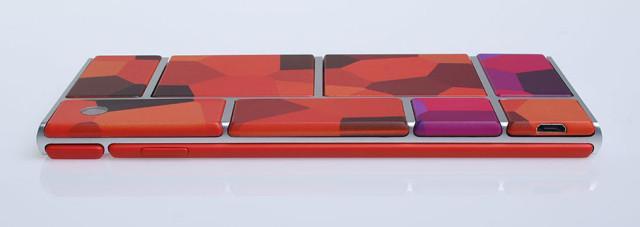
It's been a while since I've talked about Project Ara. Project Ara, for those of you who don't know, is a collaborative project between Motorola and the people who designed the concept of Phonebloks in order to bring consumers a new type of smartphone. Although many companies are struggling to find the next big feature that brings consumers in, Project Ara is less about the gimmicks and more about the potential good it can do for people both financially and environmentally. Project Ara has the potential to change the way we think about upgrading our phones sometime in the near future.
The phones that come out of Project Ara are best described as being "modular". That is, instead of all of the components being stuck in a complicated mess under the hood, they'll be neatly separated into modules - or blocks, if you will (hence "Phonebloks"). The reason for this is because when something like a speaker, camera or screen gets cracked or goes bad, what do you do? You get rid of or replace the entire phone. Some people recycle their phones, but depending on the condition of the phone it might be too mangled to salvage. I myself am having camera issues, and when I eventually care enough to get it replaced I have to get the entire phone replaced, even though it's just one part that's giving me issues. Under Project Ara's concept, I'll only have to switch out a small module if that happens, which is pretty amazing.
Project Ara is also good on a customization level. When Project goes live will probably be the first taste of any of us being able to easily create out own smartphone. These aren't supposed to be cookie cutter devices where all of them are the same - they're pretty much as customizable as you can get. You can get bigger or smaller modules for features depending on what is important to you. Bigger battery and a smaller camera for those who would rather have longer batter life and don't use their phone for a whole lot of picture-taking. Or you could make some module smaller in order to have more memory in your device. It's your device, so you get to pick the parts. The screen also counts as one big module, and all of this sits on one "skeleton" board, which is the only element that would remain the same throughout the entire period of owning a phone.
Allegedly, being able to make phones in such a fashion will bring down the cost of what we're used to paying for an entire new phone. After all, we're only paying for parts here and there. Since Motorola is the big company behind this idea, I can certainly see it being cost-effective with them being the ones to come up with the Moto G, a phone that fits in with mid-range phones at the extremely low price of just $179. I'm still amazed at what they were able to pull off there. Also, since Motorola owns Moto Maker, they would seem like the right company to have everything together in order for people to customize an entire phone. The entire concept of Project Ara just fits in with what Motorola has brought to the table this year, so I already have pretty high hopes for it.
But more importantly, or at least what I find more important than anything, is that it has the real potential to cut down on electronic waste. Electronic waste is quickly piling up, and in a recent report from The Independent the world is predicted to have amounted 65 million tons of electronic waste by 2017. That's just 4 years' time. We also learn from the article that not only are we still learning the effects that electronic waste has on people, but we're also trying to find safe ways to extract the precious metals from the electronics to begin with. Needless to say, actually recycling the electronics is a very slow process. The only other way to slow down the rapid increase in electronic waste is to do something about it ourselves - like making the design of electronics easier to disassemble and actually recycle.
Project Ara seems like it would be a step in the right direction. Although it's probably a lot easier to make modules out of smartphones, which are essentially tiny computers, rather than actual computers or televisions, I'm willing to bet that similar concepts aren't completely off the table. Since we don't really know about the long term negative effects of electronic waste, I'm really excited that Project Ara is at least, hopefully, going to be able to give us the opportunity of making a small chip in the massive block that has become e-waste. Hopefully, similar concepts or efforts in the future will help reduce these massive numbers we are facing.
And, the concept for the phone just seems pretty cool, so there's always that bonus.
How are you feeling about Project Ara, readers? As Motorola gets a little more detailed about what all Project Ara entails and its anticipated release "sometime soon", are you thinking you'd want to try one of these modular smartphones in the future? Let us know your thoughts in the comments below!
Image via Phandroid